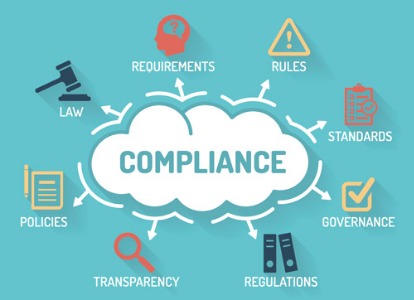Regulatory Compliance: Sidestepping Penalties through Robust Cybersecurity
In our ongoing series, “Cybersecurity: The Unsung Hero of Revenue Protection,” we’ve explored how cybersecurity acts as a strategic business asset, protects revenue, builds customer trust, and enhances operational efficiency. In this final instalment, we turn our attention to the role of cybersecurity in ensuring regulatory compliance, and how businesses can sidestep penalties by building a solid cybersecurity infrastructure.
As our world becomes more digitally interconnected and data-dependent, regulatory bodies worldwide are tightening their controls to ensure consumer privacy and data security. In this context, strong cybersecurity measures become more than a protective shield – they become a necessity for maintaining regulatory compliance and avoiding hefty penalties.
The Importance of Regulatory Compliance
Regulatory compliance is not merely about fulfilling legal obligations. It’s about protecting businesses from potential financial and reputational damage. Failure to comply with regulations can result in significant fines, sanctions, or even restrictions on business operations. In addition, it can harm a company’s reputation, eroding customer trust and impacting revenues.
Moreover, compliance often signals to customers, partners, and stakeholders that a business is committed to protecting its data. Thus, regulatory compliance becomes a trust-building exercise, reinforcing customer loyalty and stakeholder confidence.
Strong Cybersecurity: The Backbone of Regulatory Compliance
Strong cybersecurity measures are often a prerequisite for compliance with different regulatory frameworks. By implementing robust security measures, companies can demonstrate their commitment to data privacy and security, thereby meeting compliance standards.
Furthermore, compliance requirements often include the need for proper cybersecurity policies, regular risk assessments, and the presence of incident response plans. Implementing these practices not only strengthens a company’s cybersecurity posture but also ensures they meet regulatory requirements, thus avoiding potential fines and penalties.
Case Study: Dodging Regulatory Penalties through Effective Cybersecurity

Let’s examine a case study that illustrates the critical role of cybersecurity in ensuring regulatory compliance. A healthcare organisation, handling sensitive patient data, found itself in the crosshairs of stringent health information privacy regulations.
Recognising the regulatory requirements and the potential risk of non-compliance, the organisation invested heavily in improving their cybersecurity infrastructure. They updated their data protection protocols, conducted regular risk assessments, and developed an incident response plan.
These measures proved pivotal when the organization experienced a cyber-attack. Due to their robust cybersecurity measures, they were able to quickly detect and contain the breach, minimizing the exposure of sensitive data. Following the attack, they provided a detailed account to the regulatory body, demonstrating that they had taken all necessary precautions to protect patient data.
As a result, the organization was not penalized, as they were deemed to have complied with the regulatory requirements for data protection and incident response. This case underscores how strong cybersecurity measures can help businesses maintain regulatory compliance and avoid penalties.
In conclusion, as regulatory frameworks around data privacy and security continue to evolve, strong cybersecurity measures will remain an integral part of regulatory compliance. By investing in robust cybersecurity, businesses can ensure they remain compliant, avoid penalties, and protect their reputations.
That wraps up our series, “Cybersecurity: The Unsung Hero of Revenue Protection.” We hope it’s been insightful and sparked productive conversations about the pivotal role of cybersecurity in contemporary business strategy.
Stay tuned for our upcoming content, where we’ll continue to explore the evolving landscape of cybersecurity and its implications for businesses.
